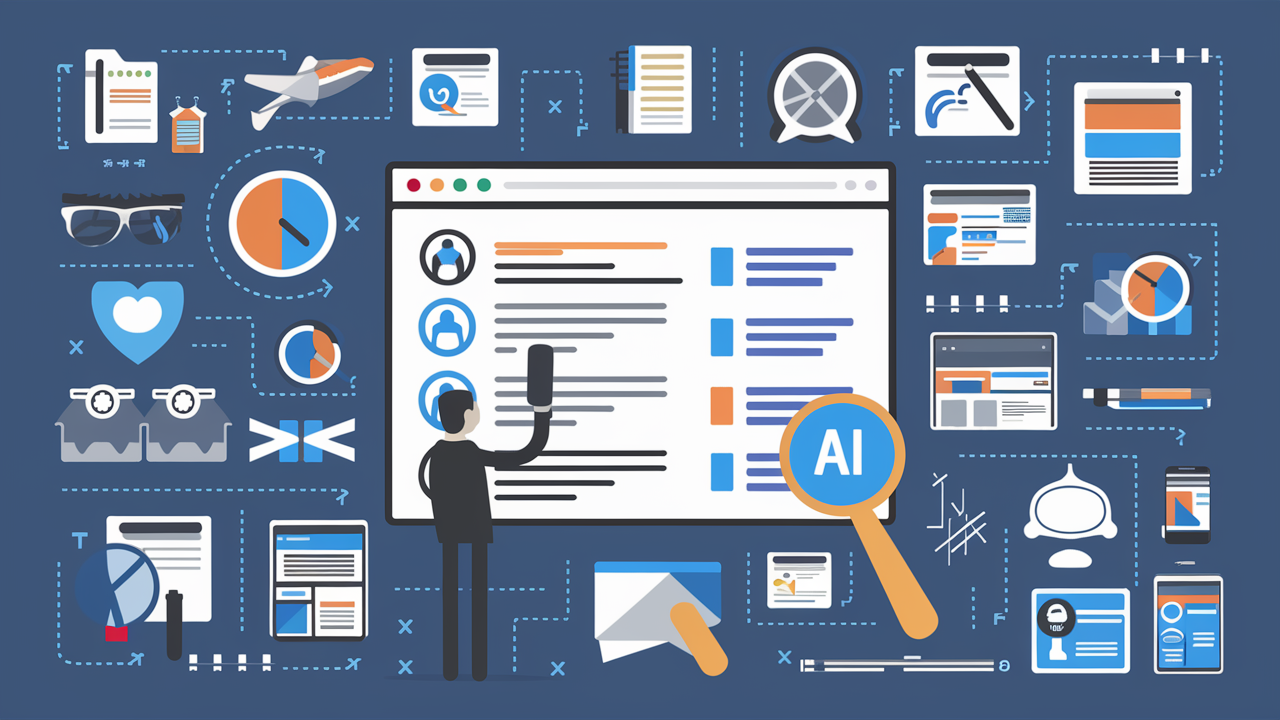TL;DR:
- AI-generated search results, powered by models like Gemini, are transforming how search engines process and display data.
- These results rely on context understanding, improved relevance, and real-time learning to enhance user experience.
- Search Engine Optimization (SEO) strategies are shifting to align with AI-generated results emphasizing topical authority and content quality.
- Balancing technical optimization with human-centered content is key to staying relevant in this evolving landscape.
- The future of search lies in hybrid systems that blend traditional algorithms with AI-driven models.
What Are AI-Generated Search Results?
AI-generated search results refer to the output of search engines enhanced by artificial intelligence models like Google’s Gemini or OpenAI’s systems. Instead of relying solely on traditional algorithms, these results leverage machine learning to provide more personalized, context-aware, and accurate answers to user queries.
The rise of these systems is revolutionizing how search engines interpret intent and serve content. AI models use natural language processing (NLP) to understand complex queries and deliver results that go beyond simple keyword matching. As a result, users experience more accurate and dynamic search outcomes.
How Do AI Models Enhance Search Results?
AI models refine search results by addressing several key areas:
- Context Analysis: Unlike older systems, AI strengthens understanding of user intent by considering the context of queries rather than focusing solely on exact phrases.
- Semantic Understanding: Models break down the meaning of words, enhancing relevance by interpreting synonyms, related phrases, or trends.
- Real-Time Learning: Continually updating with new data, AI adapts to how users interact with search results, improving quality over time.
- Predictive Capabilities: These systems suggest results before a user finishes typing, thanks to predictive algorithms tailored to specific behavior patterns.
Why Are AI-Generated Search Results Changing SEO?
The paradigm shift brought by AI-generated search results challenges traditional SEO practices. Here’s why:
1. De-prioritization of Exact Keywords
Earlier, SEO focused heavily on stuffing exact-match keywords into content. Now, AI prioritizes natural language and user intent. Content that answers real questions and offers depth will outperform keyword-laden pages.
2. Topical Expertise Becomes King
AI models value expertise and comprehensive coverage of subjects. This favors websites that build topical authority by covering various aspects of a subject in-depth over time.
3. Structured Data Grows in Importance
AI systems rely on structured data and schema markup to understand a page’s context efficiently. Adding metadata, rich snippets, and FAQs improves discoverability and relevance for AI-generated results.
4. Importance of E-E-A-T (Experience, Expertise, Authoritativeness, Trustworthiness)
E-E-A-T principles are now more crucial than ever. AI evaluates content quality based on author expertise, source credibility, and user feedback.
How Can Businesses Adapt?
To remain competitive, businesses and content creators must adapt their strategies. Here’s how you can optimize for AI-generated search results:
- Focus on High-Quality, Intent-Driven Content: Research what your audience is searching for and craft detailed, actionable content addressing these questions.
- Utilize Structured Data: Implement schema markup to better signal your website’s purpose to AI systems.
- Ensure Mobile Optimization: With AI prioritizing user experience, mobile-friendly and fast-loading pages are foundational.
- Audit and Refresh Older Content: Ensure previous material aligns with current search intent and includes updated, accurate facts.
- Engage in Continuous Learning: Track AI-driven search trends and adapt your strategies to match the evolving algorithms.
Example: Effective AI Optimization
For instance, let’s consider an e-commerce website selling headphones. Instead of targeting repetitive keywords like “best headphones 2023,” shift towards topics like:
- “What features should you look for when buying over-ear headphones?”
- “How noise cancellation works in modern headphones.”
- “Best headphones for travel: A comprehensive guide.”
These topic-driven content pieces feed AI’s appetite for context, improving your visibility.
What Does the Future Hold?
AI-generated search results are still in their infancy. Over time, we’re likely to see:
- Hybrid Search Systems: Search engines may blend traditional algorithms with AI-powered systems for better balance.
- Voice and Visual Search Dominance: AI’s advanced NLP and image recognition abilities will push voice and visual search interactions to the forefront.
- Greater Personalization: AI will continue to refine searches based on past behavior, location, and other personal factors.
- Industry-Specific AI Models: Specialized AI models catering to niches like healthcare, education, or law may emerge.
Visualizing this evolution, an infographic comparing traditional SEO frameworks vs. AI-centric strategies could help clarify the transition.
Conclusion
Understanding AI-generated search results is essential for navigating this new era of search engines. AI is pushing the envelope, moving from keyword-centric approaches to intent-driven elegance. Adopting strategies aligned with AI optimization—like prioritizing rich, authoritative content, leveraging structured data, and monitoring search trends—ensures success in this evolving landscape.
As the line between human intention and machine intelligence continues to blur, the future of SEO lies in finding harmony between algorithms and human needs. This balance will define the next decade of search innovation. Are you ready to adapt?
Takeaway: Embrace change, invest in quality content, and think beyond keywords. The future of search is intelligent, dynamic, and here to stay.

